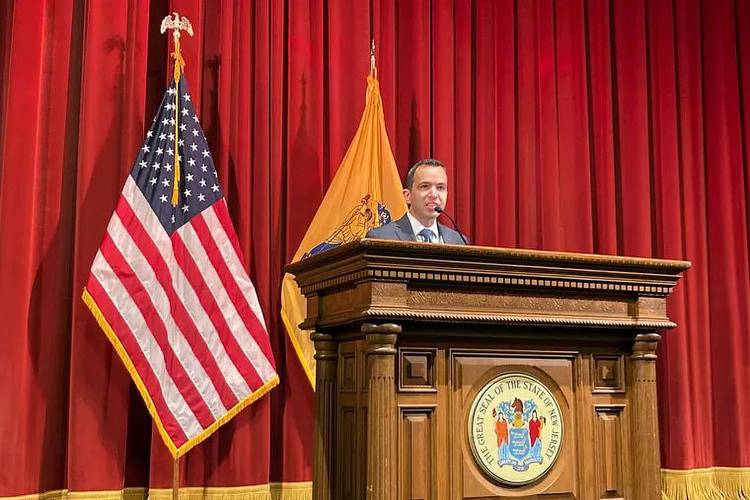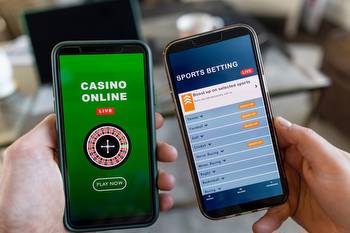New Jersey program to ID gambling problems launches for Super Bowl 2023

With a record one in five Americans expected to wager on this year’s Super Bowl, officials in New Jersey are implementing what they call a “first of its kind” program that would help identify those with potential gambling problems based on data collected from betting apps.
The New Jersey Division of Gaming Enforcement and Attorney General Matthew J. Platkin’s office detailed the project on Tuesday, days before the Eagles and Chiefs showdown that theindustry estimates will bring in a whopping $16 billion in bets.
The state’s responsible gaming initiative will gather data about a gambler’s habits that have already been collected through online gambling operators, many who operate wildly popular betting apps that have flourished since sports betting became legal in New Jersey in 2018 and have caused problems for those recovering from addiction.
“It is no coincidence that our announcement comes just a week ahead of one of the biggest days in sports wagering, serving as a reminder of how devastating a gambling addiction can be,” Platkin said in a statement.
According to Platkin’s office, New Jersey gaming officials will look at data for gamblers whose play time increases from week to week, who wager until they have less than $1 in their accounts, and who regularly try to self-impose cool-off periods or attempt to ban themselves from gambling using a state registry.
Deposits of thousands of dollars made into a user’s account in a short time span or multiple requests to increase deposit limits will also be taken into account, the statement said.
Gamblers agree to have their data monitored and recorded in an online gambling operator’s terms and conditions before wagering. Companies typically collect this data to help prevent fraud, identity theft, and cheating, the statement said.
Players whose behavior falls under the state’s criteria will be automatically connected to resources on responsible gambling, according to Platkin’s office. If warning signs continue, the user will be required to watch a video tutorial on responsible gambling and could eventually be contacted by the gaming operator directly.
“This new approach will enable dedicated responsible gaming experts employed by the platforms and us to see the early warning signs and reach at-risk patrons before they find themselves in a financial catastrophe,” said David Rebuck, the Division of Gaming Enforcement director.
The initiative began on Jan. 1. Platkin’s office said the plan will supplement the state’s existing safeguards.
New Jersey gamblers already can register themselves on the state’s self-exclusionary list for either one or five years, barring them from signing up for online gambling services. Those who wish to reinstate their gambling privileges after that time must register themselves to do so.
The Pennsylvania Gaming Control Board offers similar self-exclusion lists, including for casino entry and fantasy sports contests.
New Jersey and Pennsylvania residents struggling with a gambling problem can also call the free gambling helpline at 1-800-GAMBLER or contact their state’s Council on Compulsive Gambling.
Gamblers Anonymous offers peer support for struggling gamblers through in-person group sessions in locations across the country.
































